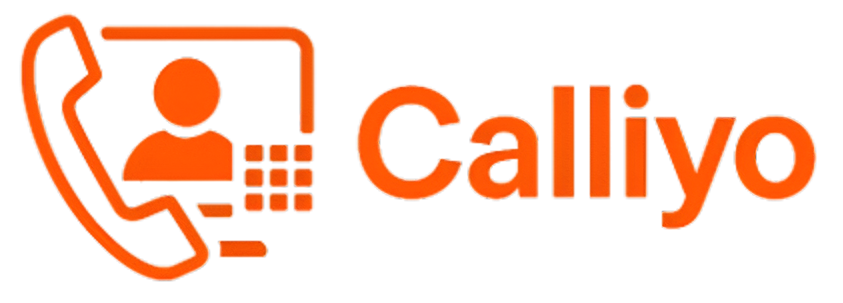In today’s fast-paced, customer-centric world, efficient and reliable communication is key to business success. For industries that rely heavily on outbound and inbound calling, a SIM-based call management system offers a powerful solution. Unlike VoIP systems that depend on internet connectivity, SIM-based calling uses physical mobile SIM cards to deliver better call quality, local number display, and higher pickup rates. This technology is gaining rapid traction across industries such as real estate, education, healthcare, BFSI, and e-commerce. In this article, we explore which industries can take advantage of SIM-based call management systems and how this cost-effective communication tool is driving productivity, customer engagement, and ROI.
Which Industries can take advantage of a SIM-based call management system?
SIM-based call management systems can be beneficial for a wide range of industries, but they are particularly well-suited for businesses that have the following characteristics:
- High call volume: Businesses that receive a high volume of calls can benefit from the scalability of SIM-based call management systems. These systems can easily accommodate a growing customer base without requiring any additional hardware or software.
- Distributed workforce: Businesses with a distributed workforce can benefit from the flexibility of SIM-based call management systems. These systems can be used to connect agents from anywhere in the world, making it easy to provide around-the-clock customer support.
- International operations: Businesses with international operations can benefit from the global reach of SIM-based call management systems. These systems can be used to make and receive calls from anywhere in the world, without the need for expensive international calling plans.
Here are some specific examples of industries that can take advantage of SIM-based call management systems:
- E-commerce: E-commerce businesses can use SIM-based call management systems to provide customer support, handle order inquiries, and process payments.
- Telemedicine: Telemedicine businesses can use SIM-based call management systems to schedule appointments, conduct virtual consultations, and provide prescription refills.
- Insurance: Insurance companies can use SIM-based call management systems to handle customer inquiries, process claims, and sell policies.
- Education: Educational institutions can use SIM-based call management systems to provide student support, manage enrollment, and handle billing inquiries.
- Travel and hospitality: Travel and hospitality businesses can use SIM-based call management systems to manage reservations, inquiries about accommodations, and customer support, ensuring a positive customer experience that encourages repeat business.
- Retail: Retailers can use SIM-based call management systems to improve customer service by providing quick and efficient call routing, enabling self-service options like IVR (interactive voice response) menus and chatbots, and tracking call performance to identify areas for improvement.
- Finance and banking: Financial institutions can use SIM-based call management systems to provide secure customer support for account inquiries, transactions, and troubleshooting issues, ensuring that sensitive customer information is protected.
- Healthcare: Healthcare providers can use SIM-based call management systems to streamline patient scheduling, appointment reminders, and follow-up calls, improving patient satisfaction and operational efficiency.
- Professional services: Professional services firms, such as law firms, accounting firms, and consulting companies, can use SIM-based call management systems to handle client inquiries, schedule appointments, and provide ongoing support, maintaining strong client relationships.
- Non-profit organizations: Non-profit organizations can use SIM-based call management systems to manage donations, volunteers, and fundraising campaigns, enhancing their ability to serve the community and achieve their mission.
In addition to these industries, SIM-based call management systems can also be beneficial for businesses in a variety of other sectors, such as retail, finance, and manufacturing.
Here are some additional benefits of using a SIM-based call management system for businesses in any industry:
- Improved customer experience: SIM-based call management systems can help businesses to provide a better customer experience by ensuring that calls are answered quickly and efficiently. This can lead to increased customer satisfaction and loyalty.
- Increased sales: SIM-based call management systems can help businesses increase sales by providing a more convenient way for customers to reach them. This can lead to increased conversion rates and higher average order values.
- Reduced costs: SIM-based call management systems can help businesses reduce costs by eliminating the need for expensive on-premise infrastructure. This can lead to significant savings in the long run.
Overall, SIM-based call management systems are a valuable tool for businesses of all sizes and in all industries. They can help businesses to improve customer experience, increase sales, and reduce costs.
Frequently Asked Questions (FAQs)
-
Which industries benefit the most from SIM-based call management systems?
Industries such as real estate, education, healthcare, BFSI, logistics, e-commerce, and local service providers benefit the most due to their high volume of outbound and inbound calls.
-
Why is SIM-based calling preferred in the real estate sector?
Real estate professionals rely on high call pick-up rates and trust. SIM-based calling uses local numbers, improving response rates and helping agents maintain better client communication.
-
How do educational institutions use SIM-based call management?
Coaching centers, schools, and ed-tech platforms use it to follow up with leads, send admission reminders, and handle support queries with better connectivity and lower costs.
